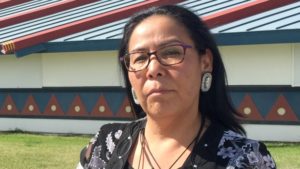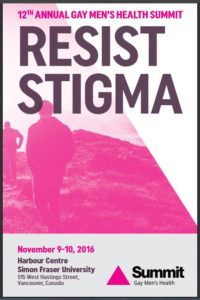What are you doing tomorrow, Friday, April 24th from 12-1 p.m. (Pacific)? If you have nothing planned, here is something you might want to consider doing. #disparity #healthcare #COVID19 #racism #stereotypeshttps://t.co/OxuhtQfb3Z
— Tracy Wong (@tlwg2012) April 23, 2020
Category Archives: Diversity
Disparity in Healthcare?
WATCH NOW: #ATypicalHeart is a @STORYHIVE documentary exploring the deadly disparity between male and female heart disease, through the lens of healthcare professionals, researchers, patients, and their families. https://t.co/dO1dgbQVTW
— The Distillery Film Company (@distillery_film) July 15, 2019
Cultural Appropriateness of Health Services?
If you are interested in learning such things as:
- The methods researchers used to engage people from a variety of ethnocultural communities in relation to their healthcare experiences,
- Research findings: re: cultural-appropriateness of health services and resources,
- Specific recommendations for a healthcare project in Alberta relating to its codesign and content as viewed through cultural appropriateness lens,
consider attending this free one-hour webinar.
A Telling Text
With efforts being made to address the many Indigenous health issues in Canada, the recommendations put forth by the Truth and Reconciliation Commission, and the high suicide rate in some Indigenous communities, a text sent out by an Alberta Health Services employee has generated much anger and disappointment.
According to an article found on the CBCNews Calgary website,
An Alberta Health Services employee has been suspended after using a racial slur in a text message to refer to a Kainai Board of Education school principal.
The texts sent by the AHS employee on Monday refer to a colleague apparently being disciplined during a training event on the Kainai First Nation, also known as the Blood Tribe First Nation, which is southwest of Lethbridge and about 200 km south of Calgary.
However, the AHS employee accidentally sent the texts to an employee at the Kainai Board of Education.
Ramona Big Head — principal of Tatsikiisaapo’p Middle School in Stand Off — said she’s referred to in one of the texts as a “rabid squaw.”
Click here to read the full CBC story.
Here is a follow-up article pertaining to the above story.
The Sign Says What?!
For many people, going to the doctor’s office can be a stressful, anxiety generating, uncomfortable experience. One can only imagine what an indigenous individual would feel upon entering his/her doctor’s office and being greeted by sign that said the following:
“Attention: native patients please don’t ask for tranquilizers or pain medications.”
Maxine Ginnish, who works at the Rising Sun Healing Centre, and took a photograph of the note posted at her doctor’s office is seeking an apology. Click here to read the full story.
Is the Room Getting Smaller or the Elephant Getting Bigger?
 Continuing on from an earlier post, below are some additional advisor-related topics that have been suggested for this year’s Quality Summit 2017.
Continuing on from an earlier post, below are some additional advisor-related topics that have been suggested for this year’s Quality Summit 2017.
- Diversity and Healthcare – This could include such things as gender, sexual orientation, culture, ethnicity, age, disability etc. Diversity is a topic that applies to all populations, regardless of whether one is a patient, member of the community, healthcare provider, advisor, or healthcare professional.
- Disparity and Healthcare – Socioeconomic status, poverty, accessibility and health/well-being.
- Volunteer Burnout – What is volunteer burnout? What causes volunteer burnout? How can it be prevented?
- What is the ideal healthcare system as seen from leadership, management, frontline staff, patient/family advisors. What are the frustrations and barriers associated with realizing this ideal?
- What is an effective partnership for patient/family advisors and AHS staff?
- Why does storytelling matter and how could it help in connecting with the person before the patient? Empathy vs. apathy.
- Drawing from patient/family advisors across Canada, what are their frustrations, hopes, dreams and lessons learned with respect to their advisor role?
- What are some advisory opportunities and innovative ideas and programs from Alberta and beyond?
- What does meaningful involvement mean to patient/family advisors?
“[T]he meaningful involvement of patient and family advisors with healthcare, (where meaningful means for everyone involved – the advisors, front-line providers, research, operations, senior mgmt, etc.)” - “To what extent are patient and family advisors meaningfully involved with healthcare?” (where ‘meaningful = having a serious, important or useful quality or purpose’ … and reference to meaningful means for all stakeholders involved – the advisors themselves, front-line providers, research, operations, senior mgmt, etc.)”
Gay Men’s Health Summit
The 2016 Gay Men’s Health Summit will be held at Simon Fraser University on November 9 and 10th, 2016. Over the two-day event, topics to be addressed include how technology and social media are helping to improve the health and well being of gay and bisexual individuals, challenges faced by trans men within the gay community, suicide prevention, racism, racial issues, and mental health. There will also be a workshop on the role Truth and Reconciliation recommendations can play in organizations. Click here to find out more about the Summit and to register for the event.




